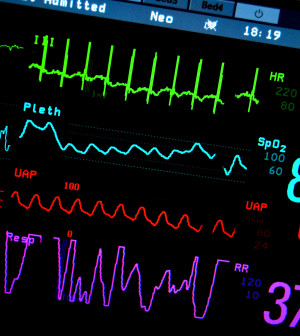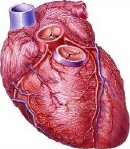- Double Mastectomy May Offer No Survival Benefit to Women With Breast Cancer
- Toxic Lead Found in Cinnamon Product, FDA Says
- Certain Abbott Blood Sugar Monitors May Give Incorrect Readings
- Athletes Can Expect High Ozone, Pollen Counts for Paris Olympics
- Fake Oxycontin Pills Widespread and Potentially Deadly: Report
- Shingles Vaccine Could Lower Dementia Risk
- Your Odds for Accidental Gun Death Rise Greatly in Certain States
- Kids From Poorer Families Less Likely to Survive Cancer
- Tough Workouts Won’t Trigger Cardiac Arrest in Folks With Long QT Syndrome
- At-Home Colon Cancer Test Can Save Lives
Study Sheds Light on How Heart Heals Itself


New insight into the heart’s ability to repair itself could help scientists develop ways to improve recovery after a heart attack, a new study of mice suggests.
Researchers found that a signaling pathway — called the Hippo pathway — normally blocks heart repair in adult mice. When certain signals were removed, the animals’ hearts were able to regenerate after being damaged.
This was because specialized heart cells called “cardiomyocytes” were able to multiply much better after the signals were removed, an ability that is normally lost in damaged hearts, according to the researchers from the Baylor College of Medicine and the Texas Heart Institute.
“The heart is very poor at repairing itself after various types of injury including the most common injury, the myocardial infarct [heart attack],” team leader James Martin said in a news release from The Company of Biologists.
“We were very excited to see full return of cardiac function in the Hippo-mutant hearts after injury. It was the culmination of a lot of hard work and also a little good luck,” Martin said.
The study was recently published in the journal Development.
Previous research has shown that hearts can regenerate in embryos during their development, and also in newborn mice. But this ability is lost during adulthood. Some fish and amphibians can repair their hearts as adults, but it’s believed that humans lost this ability during the course of evolution.
This new finding suggests that it may be possible to reactivate the human heart’s ability to repair itself.
“The implications for treating heart disease are great. With recent advances, it is now clear that the heart muscle can be coaxed to make new muscle cells,” Martin said.
Scientists note, however, that research with animals often fails to provide similar results in humans.
More information
The U.S. National Heart, Lung, and Blood Institute has more about heart attack.
Source: HealthDay
Copyright © 2024 HealthDay. All rights reserved.










